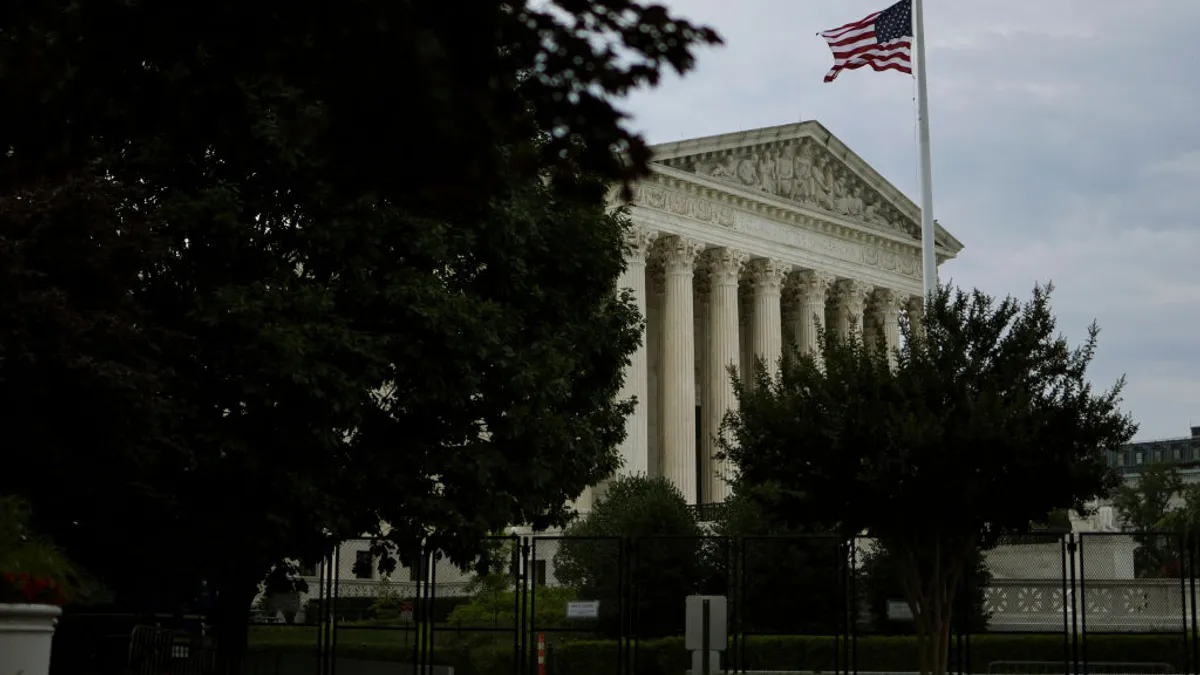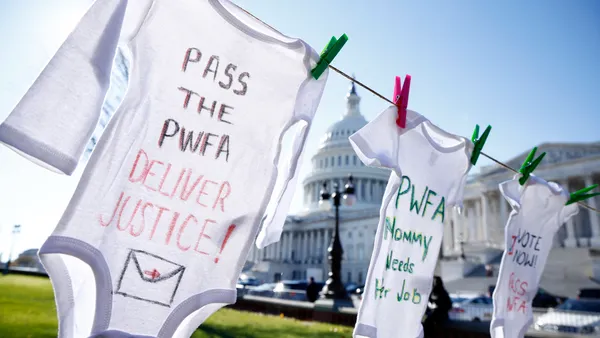A retired employee is not a “qualified individual” for the purposes of the Americans with Disabilities Act and cannot sue for discrimination with respect to retirement benefits offered by a former employer, the U.S. Supreme Court held Friday.
In a splintered decision authored by Justice Neil Gorsuch, the court wrote that because a retiree neither holds nor desires a given job at the time that they suffer alleged discrimination, they are not qualified individuals within the ADA’s meaning. Further, the ADA’s guarantee of a reasonable accommodation to persons with disabilities does not extend to retirees, the court said.
The decision in Stanley v. City of Sanford, Florida upholds the judgment of the 11th U.S. Circuit Court of Appeals in favor of the city. A retired firefighter alleged that the city discriminated against her when it made changes to a fringe retirement health insurance benefit that reduced the length of time during which enrollees who retired early due to disability would receive the benefit.
The plaintiff, who retired early in 2018 due to complications associated with Parkinson’s disease, claimed that she had been unaware of the change when it was made during her employment with the city. She alleged that the change violated the ADA, but the 11th Circuit held that she lacked standing because she was not a qualified individual.
The Supreme Court agreed. Gorsuch wrote that the plaintiff’s position — that the law’s qualified individual requirement is a conditional mandate that does not apply to retirees — “bears scant resemblance” to the law enacted by Congress. He also rejected the plaintiff’s argument that the court should look to the ADA’s “primary purpose” and “legislative history” in support of extending the ADA’s protections to retirees.
“If Congress wishes to extend Title I to reach retirees like [the plaintiff], it can,” Gorsuch said. “But the decision whether to do so lies with that body, not this one.”
Six other justices joined the first two parts of Gorsuch’s opinion. However, only three joined the third part, in which Gorsuch said the court should clarify that plaintiffs who happen to be retired at the time that they sue, but who can plead and prove that they were both disabled and qualified when their employer adopted a discriminatory retirement-benefits policy, could qualify for the ADA’s protections. This position had been taken by the U.S. Department of Justice under President Joe Biden, which filed an amicus brief in support of the plaintiff.
“In saying as much, we stress that nothing we say today prevents future plaintiffs — or perhaps even [the plaintiff] herself in a future proceeding — from pursuing a theory along the lines the government proposes,” Gorsuch wrote. “It is simply that the theory cannot help [the plaintiff] in the present posture of this case.”
In partial concurrence, Justice Clarence Thomas wrote that he would not opine on the merits of the theory regarding retired plaintiffs who sue over discriminatory policies at the time they are both disabled and qualified because that theory “did not develop at the certiorari stage.”
Justice Sonia Sotomayor concurred in part and dissented in part and also partially joined a dissenting opinion written by Justice Ketanji Brown Jackson.
















